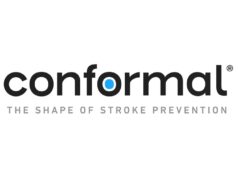Poor sleep doubles hospitalisations in heart failure, according to new research in nearly 500 patients presented at EuroHeartCare (4–5 April, Stavanger, Norway).
Peter Johansson, first author of the study and a heart failure nurse at the University Hospital of Linköping, Sweden, said: “Sleep is important for everyone and we all have to sleep to feel good. We know that sleep problems are common among patients with heart failure. But until now there was no data on whether poor sleep persists over time and how that relates to hospitalisations.”
He added: “Our study shows that some patients with heart failure have chronic sleep problems and this more than doubles their risk of unplanned hospitalisations. We need to ask all our heart failure patients whether they sleep well and if not, find out why.”
The current study included 499 patients hospitalised for heart failure who participated in the COACH (Coordinating study evaluating outcomes of advising and counselling in heart failure) study. During the initial hospitalisation, information was collected on physical functioning, mental health and sleep. Sleep problems were assessed using the question “Was your sleep restless?” from the Centre for Epidemiologic Studies Depression Scale (CES-D). After 12 months the researchers recorded the number and cause of unplanned hospitalisations during the follow-up period and assessed sleep again.
The researchers found that 215 patients (43%) had sleep problems at discharge from the initial hospitalisation and nearly one-third (30%) had continued sleep problems at 12 months. Patients with continued sleep problems were two times more likely to be hospitalised during the follow-up period than those without any sleep problems. Risk was double for all-cause hospitalisations and for cardiovascular hospitalisations. The results were adjusted for physical and mental health factors to ensure that the association was real.
Of the 284 patients without sleep problems at initial discharge, 14% developed a sleep problem during the follow-up period. There was a trend for these patients to have more cardiovascular hospitalisations than patients without sleep problems but the finding was not significant.
Johansson said: “Our finding that consistently poor sleep leads to twice as many hospitalisations in patients with heart failure underlines the impact that sleep can have on health. In Sweden we do not generally ask our heart failure patients about sleep and this study shows that we should. If patients say their sleep is poor that may be a warning signal to investigate the reasons.”
“Patients may have poor sleep hygiene, which means they do things that prevent them from getting a good night’s sleep. These include drinking coffee or too much alcohol late at night, having a bedroom that is too hot or too cold, or having upsetting conversations before going to bed,” he added. “Patients need to have realistic expectations. One night of poor sleep is unlikely to be a cause for concern, and sleep patterns naturally change with age. But patients who say they consistently have poor sleep should be taken seriously. To help the patients, health professionals for example can look at their medications or send them to a sleep lab for a sleep apnoea investigation.”
There are a number of possible explanations for the observed association between poor sleep and increased hospitalisations in patients with heart failure. Previous studies have shown that poor sleep can increase inflammatory activity and levels of stress hormones, both of which accelerate the progression of heart failure. It is also known that poor sleep is related to psychological distress, and it could be that these patients worry more about changes to their health and are more likely to visit the hospital.
Johansson said: “Poor sleep may itself lead to worsening heart failure and increased hospitalisations. Alternatively it could be a signal that patients have other problems like sleep apnoea or psychological distress that are keeping them awake. All heart failure patients should be asked about sleep so that if there is a problem we can find out what it is and provide treatment.”
EuroHeartCare is the official annual meeting of the Council on Cardiovascular Nursing and Allied Professions (CCNAP) of the European Society of Cardiology (ESC). This year’s meeting was organised jointly with the Norwegian Society of Cardiovascular Nurses.








